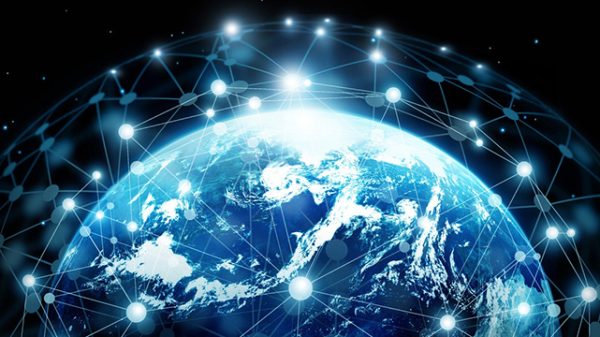China slapped new export controls on a batch of minerals such as antimony – vital for the U.S. defense industry as a flame-retardant component used in machine bearings – in a move that could send prices in the defense sector soaring.
The little-known metal antimony is used in ammunition, infrared missiles, nuclear weapons and night vision goggles, as well as batteries and photovoltaic equipment. China produced nearly half of the world’s antimony last year.
The limits, which kicked in on Sunday, apply to six antimony-related products, including antimony ore, antimony metals and antimony oxide.
The U.S. consumed some 22,000 tons of antimony last year. China accounted for 63% of U.S. imports of antimony metal and oxide last year, according to the U.S. Geological Survey (USGS). The next largest supplier, Belgium, offered some 8%.
The material is being restricted ‘in order to safeguard national security and interests, and fulfill international obligations such as non-proliferation,’ the Chinese Ministry of Commerce said in a statement.
The U.S. and other nations have been scrambling to scale back their reliance on China for key materials for the defense and energy sectors. Yet still, China is the leading import source for 25 essential minerals, including tungsten, germanium, magnesium, barite, antimony, most rare earths, indium, graphite, gallium, and arsenic.
It’s just the latest in a set of curbs on exports introduced over the past year.
In December, China banned the export of technology to make rare earth magnets, which followed another ban on exporting technology to extract and separate critical materials.
Last year, it slapped export controls on gallium, germanium and graphite in part of a retaliatory trade war after the U.S. limited exports on advanced semiconductor chips to China.
‘In the first Cold War against the Soviet Union, we were aligned against the Soviet Union with not importing national security-sensitive things,’ said Rob Greenway, a former National Security Council (NSC) official. ‘We were a net exporter across the board. Since we’ve become a net importer across the board, we have massive vulnerabilities, and our regulatory structures have not in any way kept pace with that.’
‘Our partners – Japan, South Korea, Scandinavian countries, Central American countries – they’re enormously frustrated, because not only do they have the same problem, but we’re not making it easier for them,’ Greenway, now a director at the Allison Center for National Security, went on. ‘In some cases, we’re making it easier for China. We’re taxing Taiwan’s exports, including semiconductors, more than we are Chinese exports.’
Antimony prices have nearly doubled to a record $22,750 per ton this year and export controls are expected to drive them even higher.
The new rules require sellers to apply for a sign-off from the Chinese government through a license to sell any related dual-use civilian and military materials and technology, a process which typically takes close to three months.
‘China’s new restrictions on antimony – which is used in everything from night vision goggles to nuclear weapons to tanks – will require exporters to apply for certain licenses that the Chinese Communist Party could delay or refuse outright,’ said Rep. Rob Wittman, R-Va. Wittman leads a working group on critical minerals policy in Congress.
‘As the largest producer and processor of antimony, the CCP is using the same playbook as it did for gallium and germanium to demonstrate its market dominance and put Western economies at risk – this is why we must diversify our critical mineral supply chains away from China.’
One U.S.-based company, Perpetua Resources, is looking to produce domestic antimony with support from the Pentagon and the U.S. Export-Import Bank. It’s run into opposition from environmental groups and its first production was slated for 2028, should it obtain permits later this year.
But China’s restrictions have prompted the company to look for ways to speed up production.
‘We are looking at things that we can do during construction to get antimony out the door sooner for some of these strategic needs,’ Jon Cherry, Perpetua’s CEO, told Reuters.
‘The (US) Department of Defense is aware of the critical nature of antimony and the short supply available. We’ve been hearing from a lot of different sources about the lack of supply for antimony, that the market is very tight and getting tighter daily.’
In a less closely watched move, China is also limiting exports on superabrasive materials, industrial diamonds with the highest level of hardness, and the machines that make them. Such materials are used across industries in the U.S. and are essential in the defense and energy sectors.
‘It really, truly has the ability to crater the U.S. economy. This is really terrifying,’ said Nazak Nikakthar, a former senior Commerce Department official.
‘It’s not a glamorous sector, but there is a national security obligation to alert the world to it – to build capacity in the United States [of superabrasives] to support the defense industrial base will take two to three years.’


























